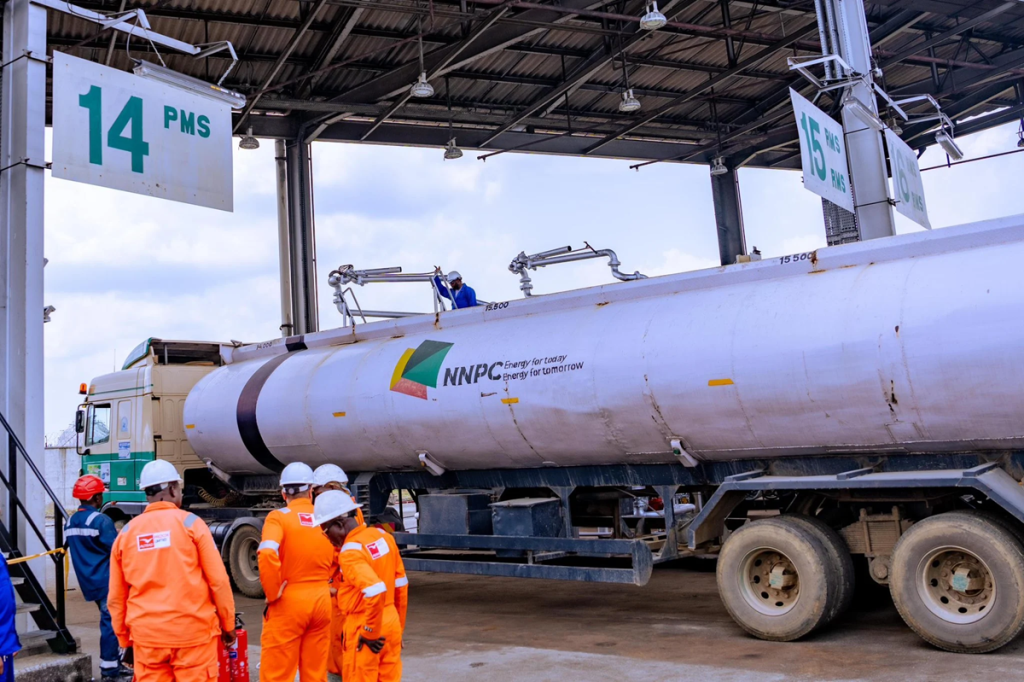Despite recent efforts to boost local petrol production, oil marketers in Nigeria have imported a staggering 2.3 billion litres of petrol between September 11 and December 5, 2024. This is in contrast to earlier public declarations by marketers to prioritise domestic supply following the commissioning of two major refineries.
The Dangote Petroleum Refinery, with a capacity of 650,000 barrels per day (bpd), began operations in September, while the Port Harcourt Refining Company (PHRC), operating its Area 5 facility with a capacity of 60,000 bpd, started production just last week. Despite these developments, data shows that in the past three days alone, marketers imported 52,000 metric tonnes of petrol, equating to 68.74 million litres.
For decades, Nigeria has depended on fuel imports to meet domestic demand, a situation that persists even with the Dangote refinery’s output. Initially, the Nigerian National Petroleum Company Limited (NNPCL) was the sole off-taker from Dangote. However, after intense discussions, the Federal Government announced on October 11, 2024, that oil marketers could negotiate directly with the Dangote refinery. This led to agreements such as the Independent Petroleum Marketers Association of Nigeria’s (IPMAN) product offtake deal.

Despite these advancements, many marketers continue to import petrol. The President of the Petroleum Products Retail Outlets Owners Association of Nigeria (PETROAN), Billy Gillis-Harry, stated last week, “Our members will temporarily suspend petrol importation for the next 180 days due to increased local production.” Similarly, the Major Oil Marketers Association announced they were suspending imports to focus on domestic supply, citing the Dangote Refinery’s output as a game changer.
Nevertheless, findings from the Nigerian Port Authority revealed ongoing importation. On December 3, the vessel Binta Saleh delivered 15.864 million litres of petrol at Apapa Port. The next day, Shamal brought in 26.44 million litres at Tin Can Port. On December 5, Watson was expected to deliver another 26.44 million litres at Calabar Port.
Eliminate Dependency
Despite a meeting chaired by NNPCL Group Chief Executive Officer Mele Kyari, aimed at eliminating petrol imports, discussions appear unresolved. The meeting included stakeholders such as the Major Oil Marketers Association of Nigeria, 11 Plc, Matrix, and AA Rano. According to one attendee, “Discussions are ongoing to ensure Dangote meets domestic fuel demand and reduces imports.”
In September, three marketers imported 141 million litres following the full deregulation of the downstream sector. Between October 1 and November 11, 2024, over two billion litres of petrol were imported by NNPCL and others. This comprised 1.5 million metric tonnes of petrol, 414,018 metric tonnes of diesel, and 13,500 metric tonnes of jet fuel, valued at approximately N3tn ($1.8bn).
Fuel Import Data Breakdown
October 2024:
Petrol: 994,446 metric tonnes
Diesel: 285,518 metric tonnes
November 1-11, 2024:
Petrol: 358,083 metric tonnes
Diesel: 112,500 metric tonnes
Jet Fuel: 13,500 metric tonnes
November 23-28, 2024:
Petrol: 78,800 metric tonnes (105.67 million litres)
These figures underscore the need for increased capacity utilisation at local refineries to achieve true self-sufficiency.


